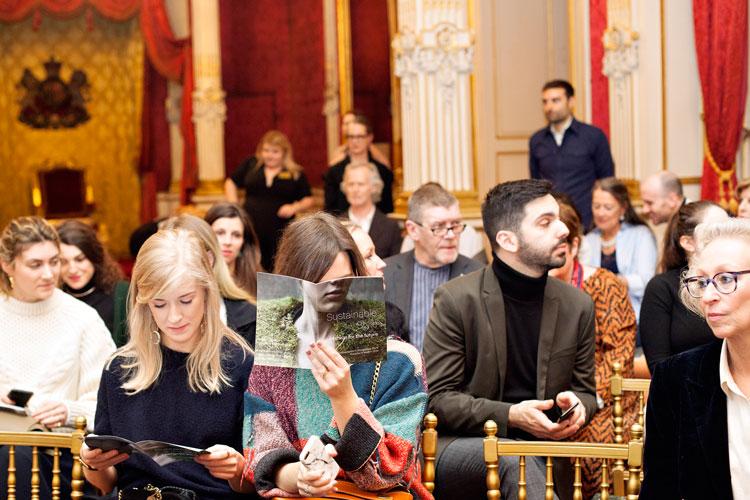The Ambassador of Great Britain in France hosted a round table discussion called Sustainable Style: Fashion for the Future, to mark the end of Paris Fashion Week. Organised in partnership with the British Embassy, Kering and the BFC and coinciding with Centre for Sustainable Fashion at London College of Fashion’s tenth anniversary, the event brought together fashion professionals from across the world including Sophia Neophitou, Gianluca Longo, Sara Jerri, Sara Maino, Yu Masui, Ken Downing, Alice Temperley, Marigay McKee, Caroline Rush and Katharine Hamnett.

The key focus of the evening was sustainable development in fashion. An important challenge in a changing industry, British and French fashion companies have launched several innovative projects aimed at addressing the challenges associated with developing a fashion that is both ecological and socially fair.
At London Fashion Week in February, LCF and Kering launched our joint sustainable fashion online course – dedicated to innovation in the sector that anyone can join for free. Head of LCF Frances Corner said:
This six-week course allows everyone to study sustainable fashion. We are often asked the cost of these studies. It’s free. They are surprised. I think that’s the spirit of sustainable development.

At the panel discussion, moderated by Godfrey Deeny, Editor-in-Chief of the Fashion Network, a panel of experts gave their vision of sustainable development. Marie-Claire Daveu, who leads the Kering Group’s sustainable development strategy for fashion, said:
We observe that only 1% of materials are recycled around the world. Our business model follows start-ups in fashion, invested in innovation and favors the use of new greener materials. In our long-term vision, gradual change is no longer enough.
Claire Bergkamp, Sustainable Development Officer at Stella McCartney, said that today’s materials innovation could change tomorrow’s fashion world:
Stella McCartney is working with a Californian start-up who has developed a way to to create silk without using silkworms, but rather by stirring yeast, sugar and spiderweb DNA.

But beyond these innovations, Tamsin Lejeune, director of the Ethical Fashion Forum, reminds us that “the quality and durability of materials is important but we often forget the problem of quantity”. Indeed, even if the materials come from ecological sources, too much will harm the fragile ecosystem of our world.
Along with the panel discussion, the event also featured an exhibition of student work, to celebrate 10 Years of the MA Fashion Futures course.

It brought together pioneering work from the first course in the world to explore sustainability through a fashion lens. It highlighted key aspects of the course, like research-led teaching, industry-informed practice and socially and environmentally embedded pedagogies. From its inception in 2008, as part of establishing the Centre for Sustainable Fashion, the course has cultivated outstanding practitioners who are experimental, eco-literate and culturally sensitive.

